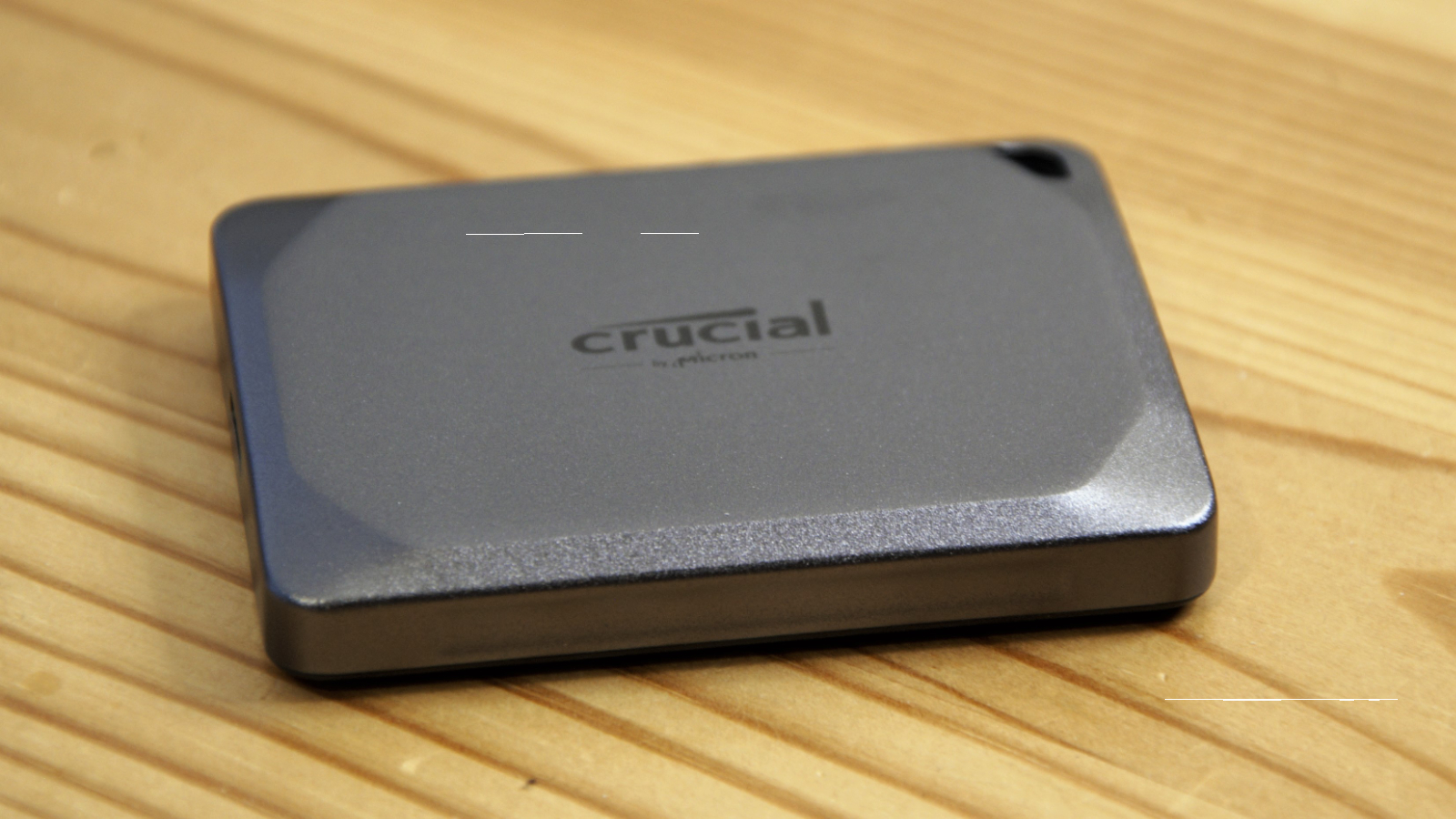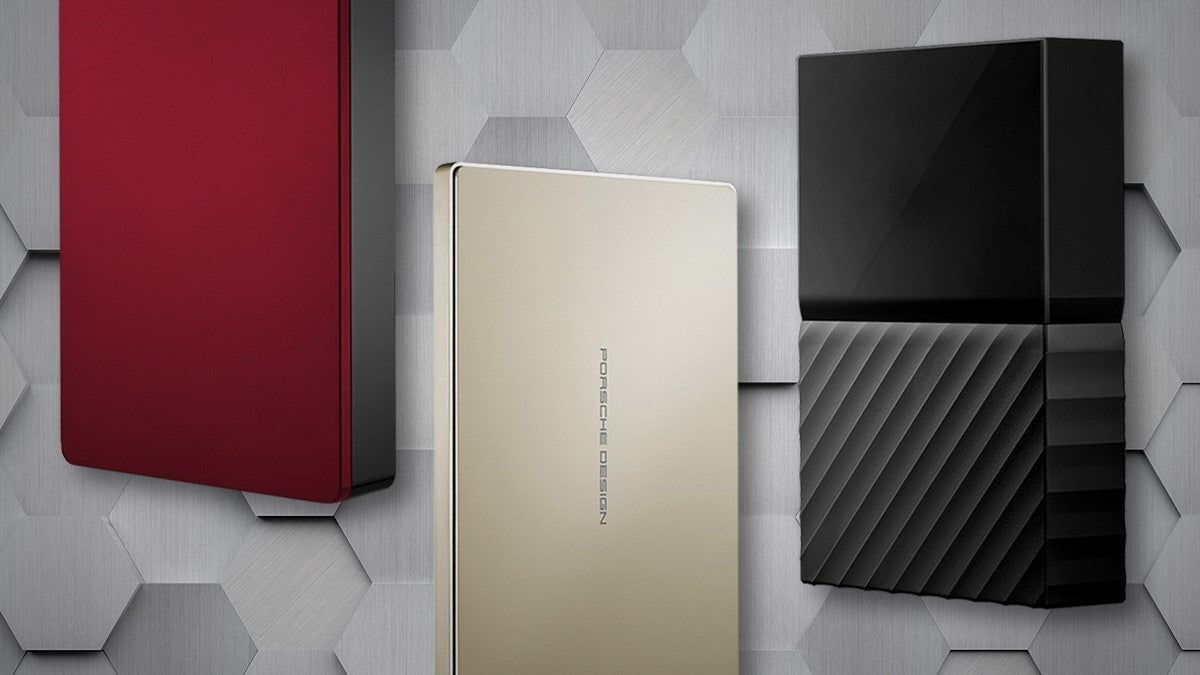Backing up data is crucial in today’s digital age. External hard drives offer a reliable solution.
In this blog, we will explore the best external hard drives for backup. Data loss can be devastating. Whether it’s personal photos or important work files, having a backup is essential. External hard drives are convenient and easy to use.
They provide ample storage and portability. Choosing the right one can be tricky. There’s a wide range of options available. Some offer high speed, others huge capacity. This guide will help you find the best external hard drive for your needs. Stay with us as we delve into the top choices for securing your data.

Credit: www.nytimes.com
Introduction To External Hard Drives
External hard drives are important for storing extra files. They are small, portable, and easy to use. Many people use them to keep their data safe. These drives connect to computers via USB. They can hold a lot of information. This includes photos, videos, and documents. They are a great way to make sure you do not lose your data.
Importance Of Backup
Backing up your data is very important. Computers can break or get viruses. When this happens, data can be lost. Having a backup means you can still get your files. It is a way to protect important information. This could be family photos, work documents, or school projects. Using an external hard drive for backup is easy. It ensures your files are always safe.
Benefits Of Using External Hard Drives
External hard drives offer many benefits This means you can save many files. They are also portable. You can take them anywhere. You can buy one without spending too much money.

Credit: www.nytimes.com
Factors To Consider
Choose a hard drive with enough storage capacity. It should meet your needs. For basic backups, 1TB might be enough. For larger files, consider 2TB or more. Think about the future. You may need more space later.
Speed is important for quick backups. Look for drives with fast read and write speeds. USB 3.0 or higher is good. SSDs are faster than HDDs. They also cost more. Balance speed and budget.
Durability matters for long-term use. Check the build quality. Metal cases are stronger than plastic. Look for shock resistance. Waterproof and dustproof features add extra protection.
Ensure the hard drive is compatible with your devices. Check the connections. USB-C is common now. Older devices might need USB-A. Some drives work with both. Also, check if it supports your operating system.
Top Picks For External Hard Drives
The Western Digital My Book offers up to 14TB of storage. This is perfect for people who need to store a lot of data. It is easy to use and reliable. It works well with both PC and Mac. The price is also reasonable for the amount of space you get.
The Samsung T5 is very fast. It uses USB 3.1 technology. This means you can transfer files quickly. It is also compact and lightweight. This makes it easy to carry around. It comes in sizes up to 2TB.
The LaCie Rugged hard drive is very strong. It can withstand drops and shocks. This makes it great for travel. It also has water and dust resistance. It comes in sizes up to 5TB.
The Seagate Expansion is affordable. This is a good choice for those on a budget.
Detailed Reviews
Product A is known for its reliable performance and large storage capacity. It offers a sleek design and is lightweight. The setup process is simple, making it user-friendly. Many users appreciate its fast data transfer speed. It also has a durable build, which ensures longevity. An excellent choice for those needing dependable backup.
Product B boasts a high data transfer rate and a compact design. It is easy to carry and fits in most bags. The storage capacity is adequate for most users. It also comes with built-in security features, adding an extra layer of protection. A good option for those on the go.
Product C offers a massive storage capacity and high durability. It is slightly heavier but offers robust protection. This hard drive is ideal for users with extensive data. The transfer speed is impressive, ensuring quick backups. Its rugged build makes it suitable for rough handling.
Product D provides a balance of affordability and performance. It is budget-friendly and offers decent storage space. The design is simple and straightforward. Users appreciate its ease of use. It is a great option for those looking for a cost-effective backup solution.
Comparison Of Top Picks
Some hard drives offer more storage. Others are more portable. A few have extra security features. Choose based on your needs. Portability is key for travel. Storage matters for large files. Security is best for sensitive data.
| Model | Price |
|---|---|
| Drive A | $60 |
| Drive B | $80 |
| Drive C | $100 |
Speed is a big factor. Some drives transfer files faster. Reliability is also crucial. Look for drives with good reviews. Compatibility with your device is necessary. Make sure the drive works with your system.
How To Choose The Right Drive
Choosing the right external hard drive for backup can be easy. Look for high storage capacity and fast transfer speeds. Consider durability and compatibility with your devices.
Assessing Your Needs
Think about what you need. Do you need to store lots of files? Maybe you need it for travel. Different uses mean different drives.
Matching Features To Requirements
Check the drive’s size and speed. Faster drives save time. Bigger drives hold more. Look at the price. Some are cheap but slow. Others cost more but work better. Choose what fits best for you.
Setting Up Your External Hard Drive
First, connect the external hard drive to your computer. Use the USB cable provided. Your computer should detect the new device. Open the file explorer. You will see the drive listed. Click on it to open. Create folders to organize your files. It’s a good idea to label folders clearly. For example, “Photos,” “Documents,” or “Music.” This helps you find your files easily. Copy and paste your files into the new folders. Wait until all files are transferred before you disconnect the drive.
Backup your files regularly. Set a schedule. Once a week is good. Always use the same drive. This keeps things simple. Make sure your files are up to date. Check your backup drive. Ensure it has enough space. Delete old files if needed. Keep your backup drive in a safe place. Away from heat and water. This protects your data. Consider using two backup drives. One at home, one at work. This adds extra security for your files.

Credit: www.pcworld.com
Frequently Asked Questions
What Is The Best External Hard Drive For Backup?
The best external hard drive for backup varies by need. Popular choices include WD My Passport and Seagate Backup Plus. They offer reliability and ample storage.
How Much Storage Do I Need For Backups?
For backups, consider your data size. A 1TB drive suits basic needs, while 4TB or more is ideal for extensive data.
Are Ssds Better Than Hdds For Backups?
SSDs are faster and more durable than HDDs but are more expensive. HDDs offer more storage for a lower price.
How Often Should I Back Up My Data?
Regular backups are essential. Weekly backups are recommended for personal data, while daily backups are ideal for critical business data.
Conclusion
Choosing the best external hard drive for backup is essential. It protects your important data. Consider your storage needs and budget. Look at speed, reliability, and portability. Many great options are available. Research and read reviews before buying. Remember, the right choice keeps your data safe.
Happy shopping!
